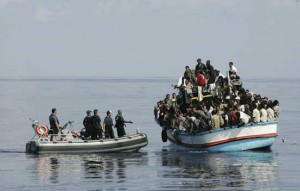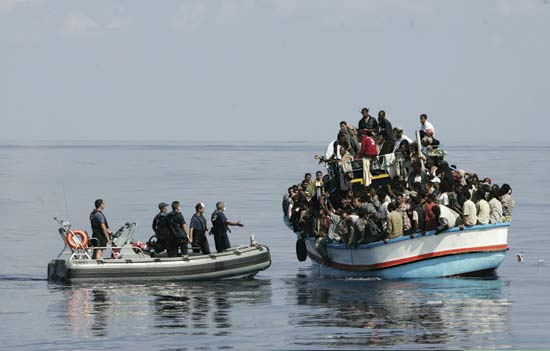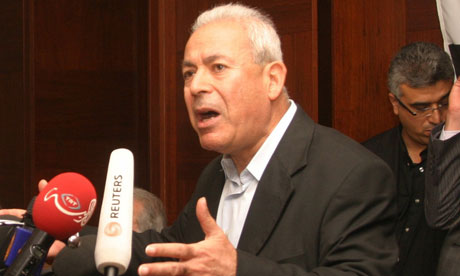Italy was wrong to force the return 200 migrants to Libya in 2009, the European Court of Human Rights ruled yesterday, . . .[restrict]in a judgement that is likely to have far-reaching implication for the treatment of all migrants seeking to enter Europe illegally.
The 200 migrants, who included Somalis and Eritreans, were originally rescued when the three aged and overcrowded fishing boats in which they were travelling were caught in a severe storm off the Italian island of Lampedusa, then a favourite and overcrowded destination for illegal migrants.

Under a “Push Back” policy adopted by Silvio Berlusconi’s government, the Humans Rights Court was told, once the refugees had been taken ashore, fed, given medical treatment and new clothes, they were returned by ship to Tripoli and handed over the the Libyan authorities.
Human rights organisations have claimed that more than a thousand illegal migrants received this peremptory treatment from the Italian authorities under Berlusconi’s “Push Back” policy.
According to the 13 Eritrean and 11 Somali nationals who brought the complaint to the court, the Italians had not even bothered to try and identify any of the 200 migrants, nor screened them to see if they were eligible for any sort of asylum application.
Lawyers argued that this treatment violated the migrants’ right to seek political asylum and exposed them to the risk of torture or degrading treatment in Libyan detention camps, from which they might also be sent back to their own countries, where they could face further persecution.
Some of the returned migrants did spend time in Libyan prisons while the rest were confined for months in inadequate detention camps. None however was forcibly removed to their country of origin.
Judith Sunderland of Human Right Watch, hailing the court’s decision, said that it vindicated the organisation’s contention that pushing migrants back to Libya put them at grave risk. “Even on the high seas” she said, “European states cannot wash their hands of responsibilities towards migrants an refugees”. The court awarded the 22 complainants €15,000 each in compensation.
[/restrict]






